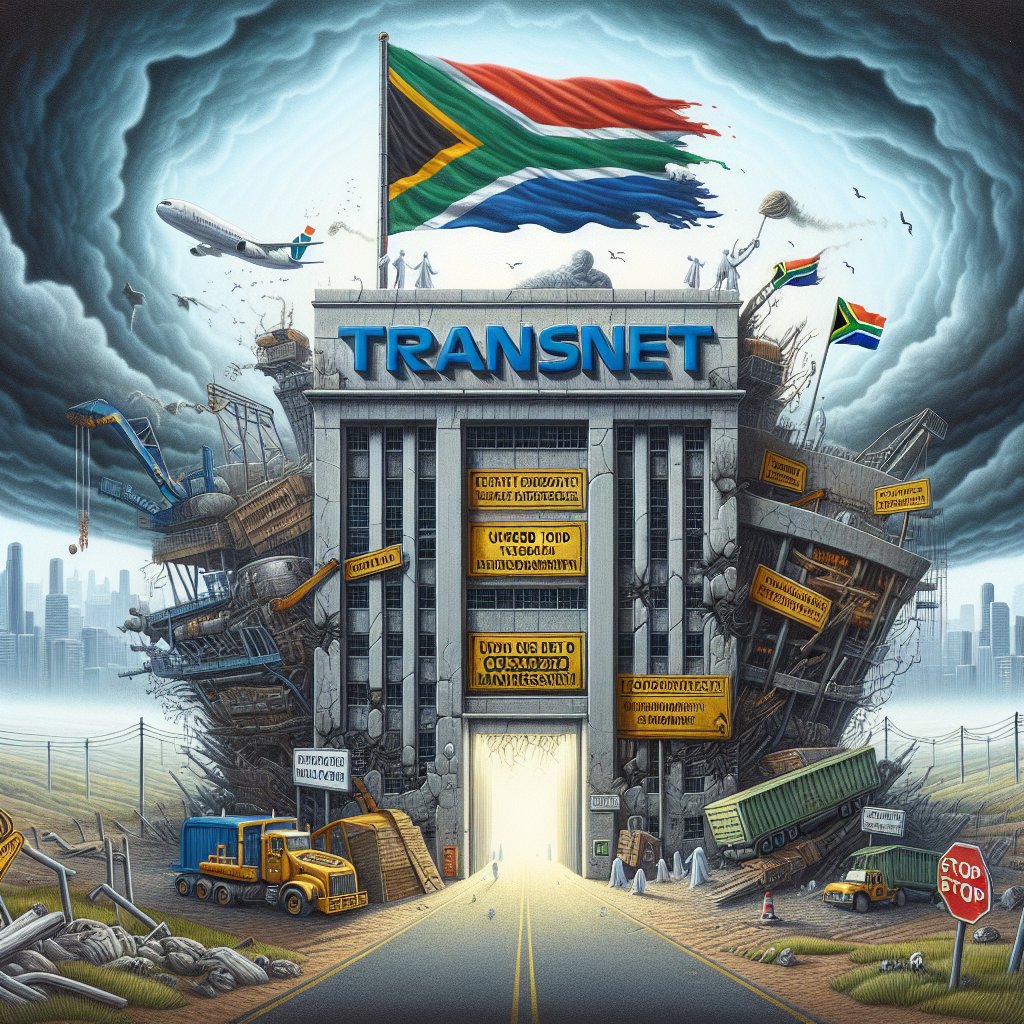Content created by AI
South Africa's SOE Bailout Conundrum: Transnet's Predicament
In a move that has sparked intense public discourse, the South African government has once again opened its coffers to provide a financial lifeline to state-owned enterprise (SOE) Transnet, despite ongoing calls for austerity among its citizens. Transnet, like several SOEs before it, has been earmarked for a 'turnaround' bailout, a concept that has become all too familiar within the South African economic landscape.
The irony is thick in the air as the same government advocating for belt-tightening amongst its people is concurrently sanctioning the distribution of billions of rand towards SOEs that have consistently failed to stand on their own feet. This dissonance has led to a dialogue suffused with frustration and bewilderment at the government's decision-making and the apparent absence of consequences for those at the helm of these troubled entities.
Transnet's plea for financial assistance is claimed to be predicated on its need to update obsolete equipment, including cranes critical for operations. However, this justification has been met with skepticism. Infrastructure maintenance and renewal are basic tenets of corporate management, begging the question of how the situation was allowed to degenerate to a point necessitating government intervention. The specter of mismanagement haunts the corridors of Transnet in a manner reminiscent of Eskom, where neglect in routine maintenance led to the power entity's current dilapidated state—a development that has left many South Africans reeling from unreliable electricity supply.
Concerns have been raised, suggesting a more sinister undercurrent to the ongoing financial turmoil within SOEs. Theories of deliberate sabotage with intent to request government bailouts—and subsequently misappropriate funds—have made their rounds, adding to the complexity and gravity of the situation. Accountability—or the lack thereof—is at the center of the controversy, as management boards have faced minimal repercussions despite repeat failures and continued pleas for more money.
Dr. Thabisi Hoeane from the Political Sciences Department at the University of South Africa in Pretoria provides an academic perspective on this troubling scenario. The continuous cycle of bailouts with minimal oversight and the same individuals remaining in charge, despite their track record, would seem to point to a systemic issue within the governance of SOEs and the broader structures of accountability in South African economic policy.
The dilemma presents a difficult question for policymakers and the South African public: how to navigate the need to maintain state apparatus and critical infrastructure while fostering a culture of financial prudence and corporate responsibility. This conundrum is exacerbated by the complex socio-economic landscape of the country, where service delivery is under unyielding scrutiny and the populace demands both efficiency and transparency from their elected officials.
As government decision-makers, including Minister Pravin Gordhan and President Cyril Ramaphosa, grapple with these challenges, a crossroads approaches. The path the government takes in addressing the plight of SOEs like Transnet may very well define the economic trajectory of South Africa in the coming years. Political insight, public engagement, and a steadfast commitment to reform may yet chart a course out of the current maelstrom.










